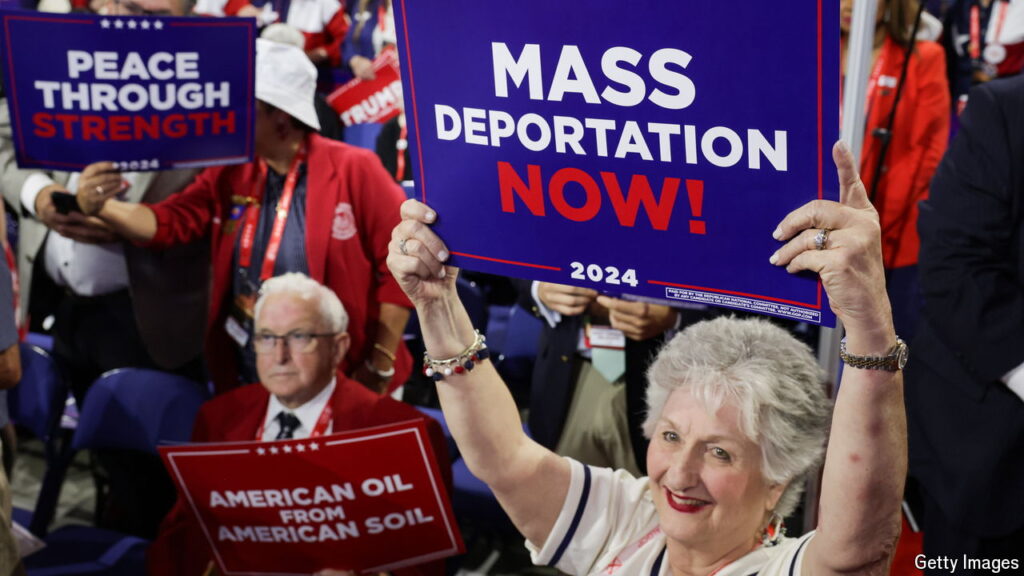Immigrants are becoming less welcome. More than half of Americans favor deporting all immigrants in the U.S. illegally to their home countries, up from a third in 2016. Only 10% of Australians favor increased immigration, a significant drop from a few years ago. Britain’s new Prime Minister, centre-left Sir Keir Starmer, wants to make the UK less reliant on immigration by training more British workers. Australia’s centre-left Prime Minister Anthony Albanese, who has been in office for a little longer, recently said his country’s immigration system is “not working properly” and wants to halve net immigration. This was before Donald Trump promised mass deportations if he won the U.S. presidential election. Populist parties across Europe are hoping to follow this example.
It’s not just words, either. Australia, Britain and Canada are cracking down on “degree factory” universities that offer courses that admit people whose real intention is to work. This year Canada wants to cut the number of study permits by a third. Other countries are making it harder for migrants to bring their families. Last month, President Joe Biden announced measures to ban asylum for people who cross the southern US border illegally. In France, President Emmanuel Macron wants to speed up deportations, and Germany is implementing a similar plan. Further tougher restrictions may be on the way. After all, Trump’s plan would probably mean the deportation of 7.5 million people. What does this crackdown mean for the economies of developed countries?

